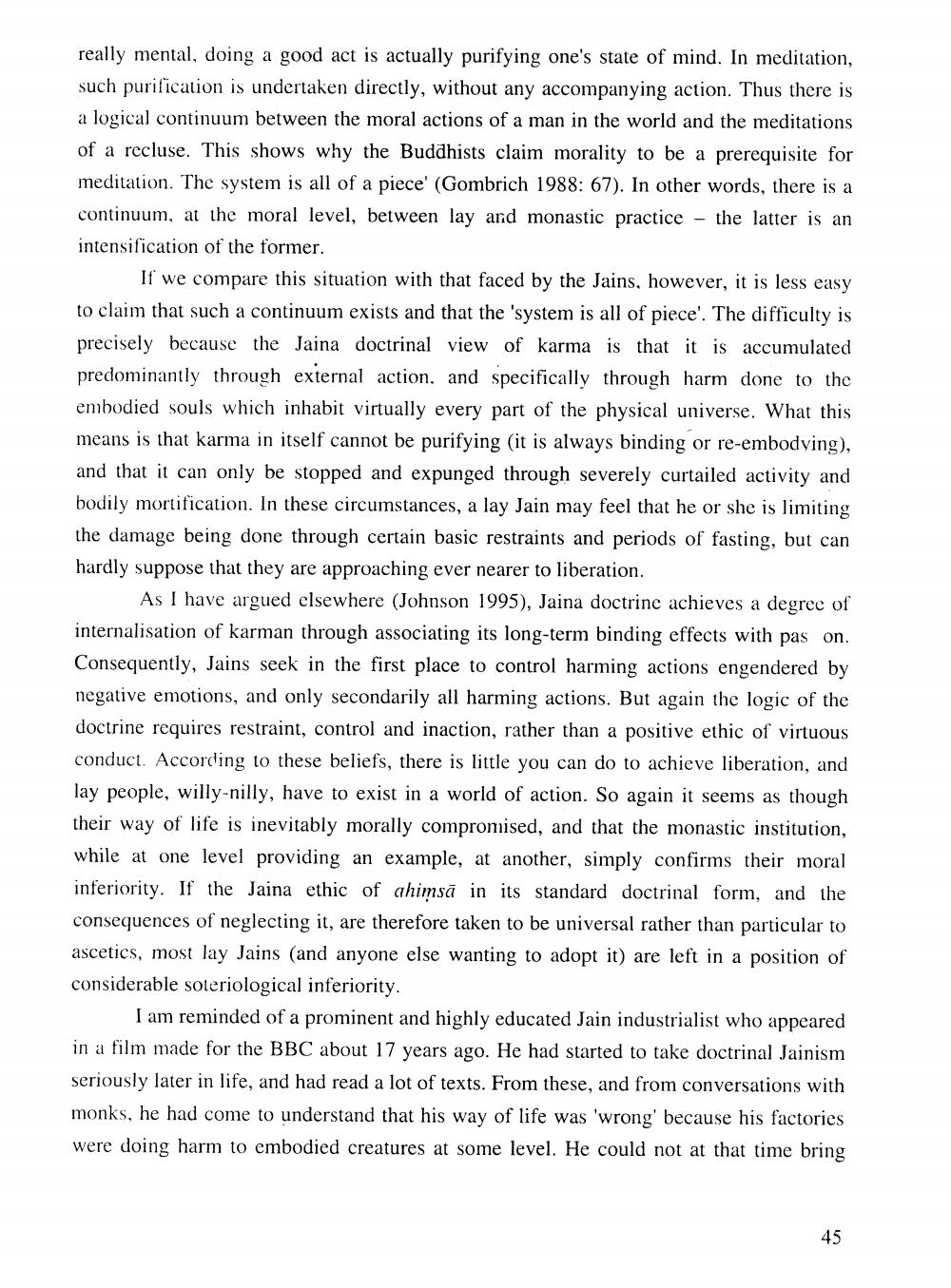________________
really mental, doing a good act is actually purifying one's state of mind. In meditation, such purification is undertaken directly, without any accompanying action. Thus there is a logical continuum between the moral actions of a man in the world and the meditations of a recluse. This shows why the Buddhists claim morality to be a prerequisite for meditation. The system is all of a piece' (Gombrich 1988: 67). In other words, there is a continuum, at the moral level, between lay and monastic practice the latter is an intensification of the former.
If we compare this situation with that faced by the Jains, however, it is less easy to claim that such a continuum exists and that the 'system is all of piece'. The difficulty is precisely because the Jaina doctrinal view of karma is that it is accumulated predominantly through external action. and specifically through harm done to the embodied souls which inhabit virtually every part of the physical universe. What this. means is that karma in itself cannot be purifying (it is always binding or re-embodving), and that it can only be stopped and expunged through severely curtailed activity and bodily mortification. In these circumstances, a lay Jain may feel that he or she is limiting the damage being done through certain basic restraints and periods of fasting, but can hardly suppose that they are approaching ever nearer to liberation.
As I have argued elsewhere (Johnson 1995), Jaina doctrine achieves a degree of internalisation of karman through associating its long-term binding effects with pas on. Consequently, Jains seek in the first place to control harming actions engendered by negative emotions, and only secondarily all harming actions. But again the logic of the doctrine requires restraint, control and inaction, rather than a positive ethic of virtuous conduct. According to these beliefs, there is little you can do to achieve liberation, and lay people, willy-nilly, have to exist in a world of action. So again it seems as though their way of life is inevitably morally compromised, and that the monastic institution, while at one level providing an example, at another, simply confirms their moral inferiority. If the Jaina ethic of ahimsa in its standard doctrinal form, and the consequences of neglecting it, are therefore taken to be universal rather than particular to ascetics, most lay Jains (and anyone else wanting to adopt it) are left in a position of considerable soteriological inferiority.
I am reminded of a prominent and highly educated Jain industrialist who appeared in a film made for the BBC about 17 years ago. He had started to take doctrinal Jainism seriously later in life, and had read a lot of texts. From these, and from conversations with monks, he had come to understand that his way of life was 'wrong' because his factories were doing harm to embodied creatures at some level. He could not at that time bring
45




